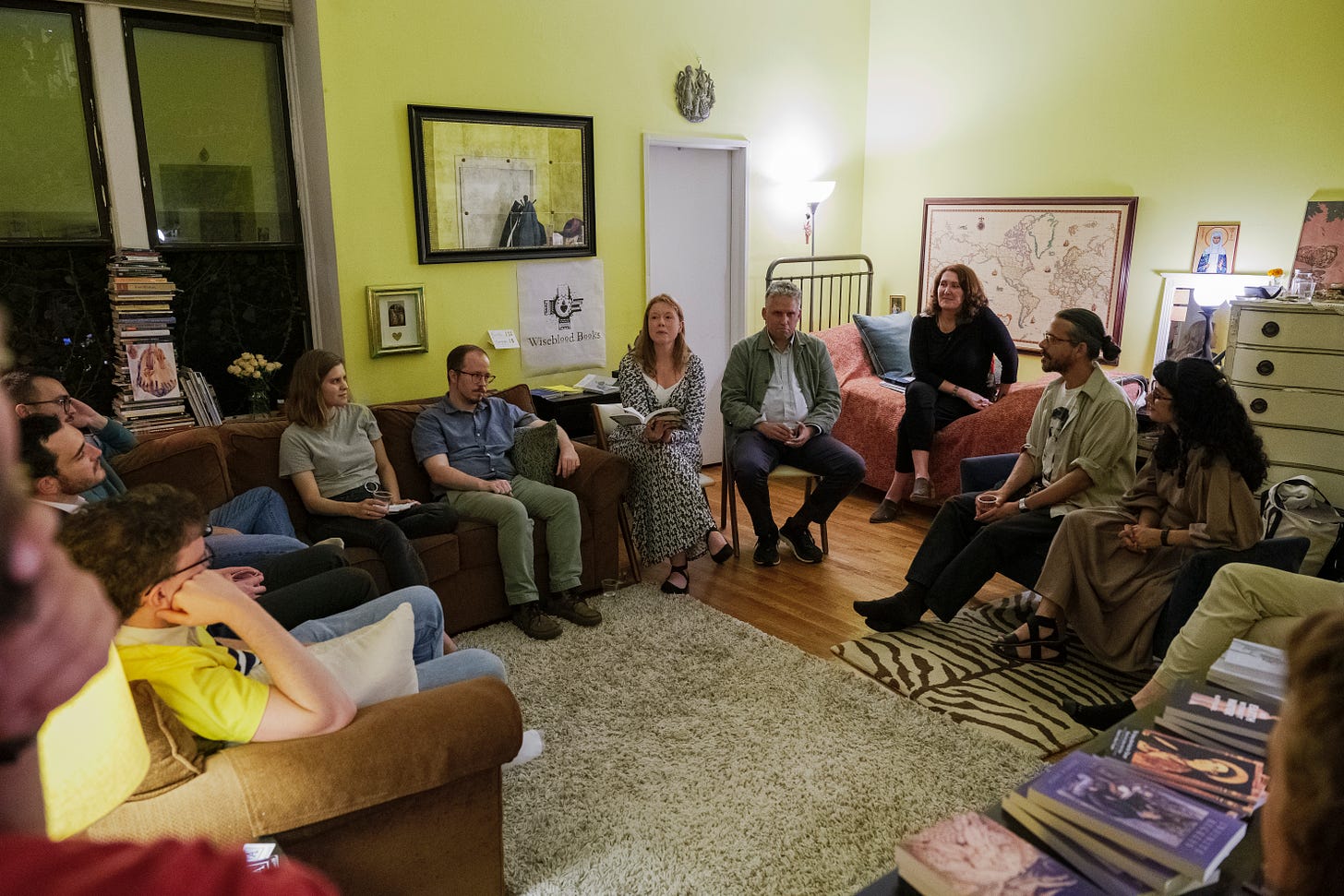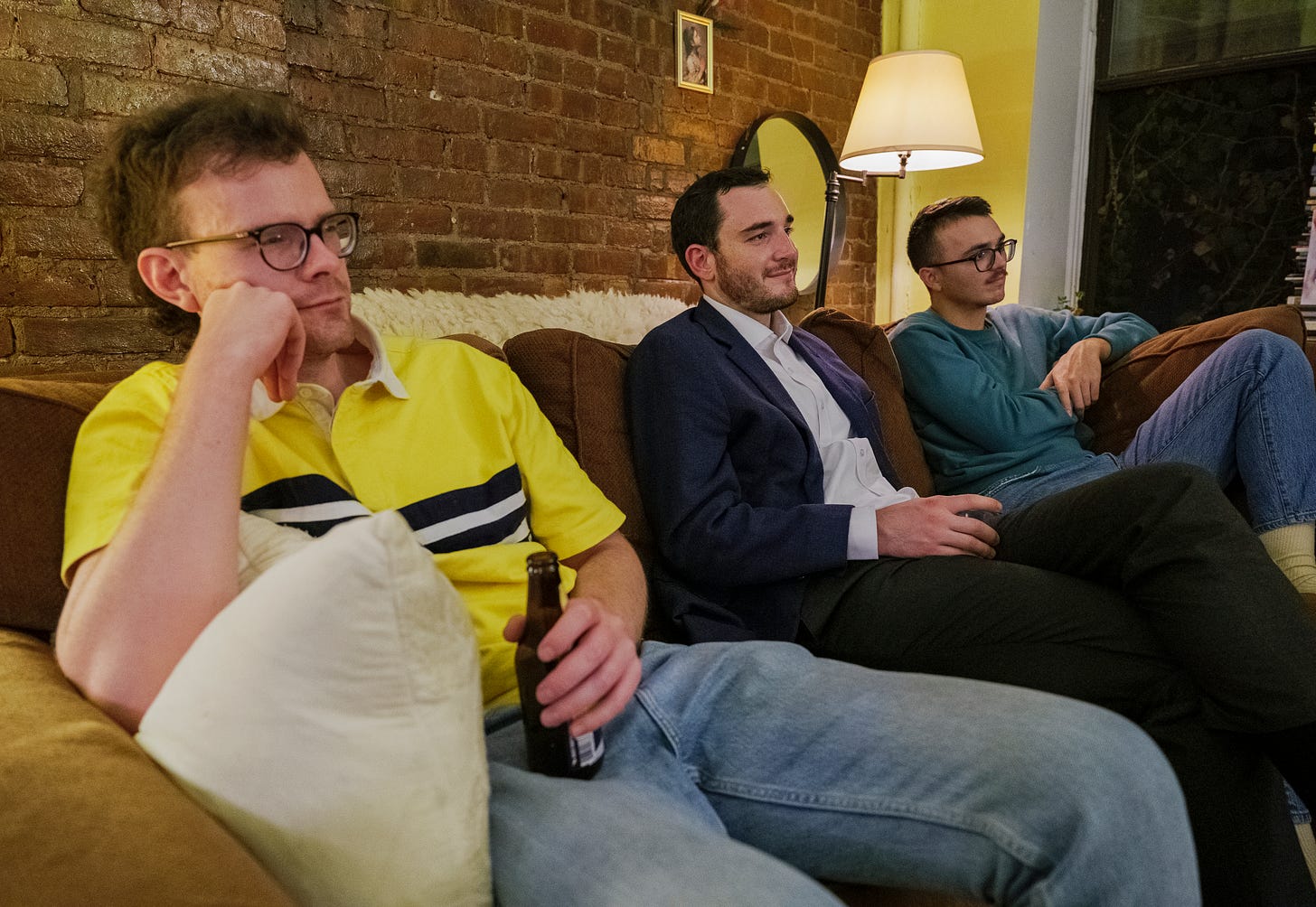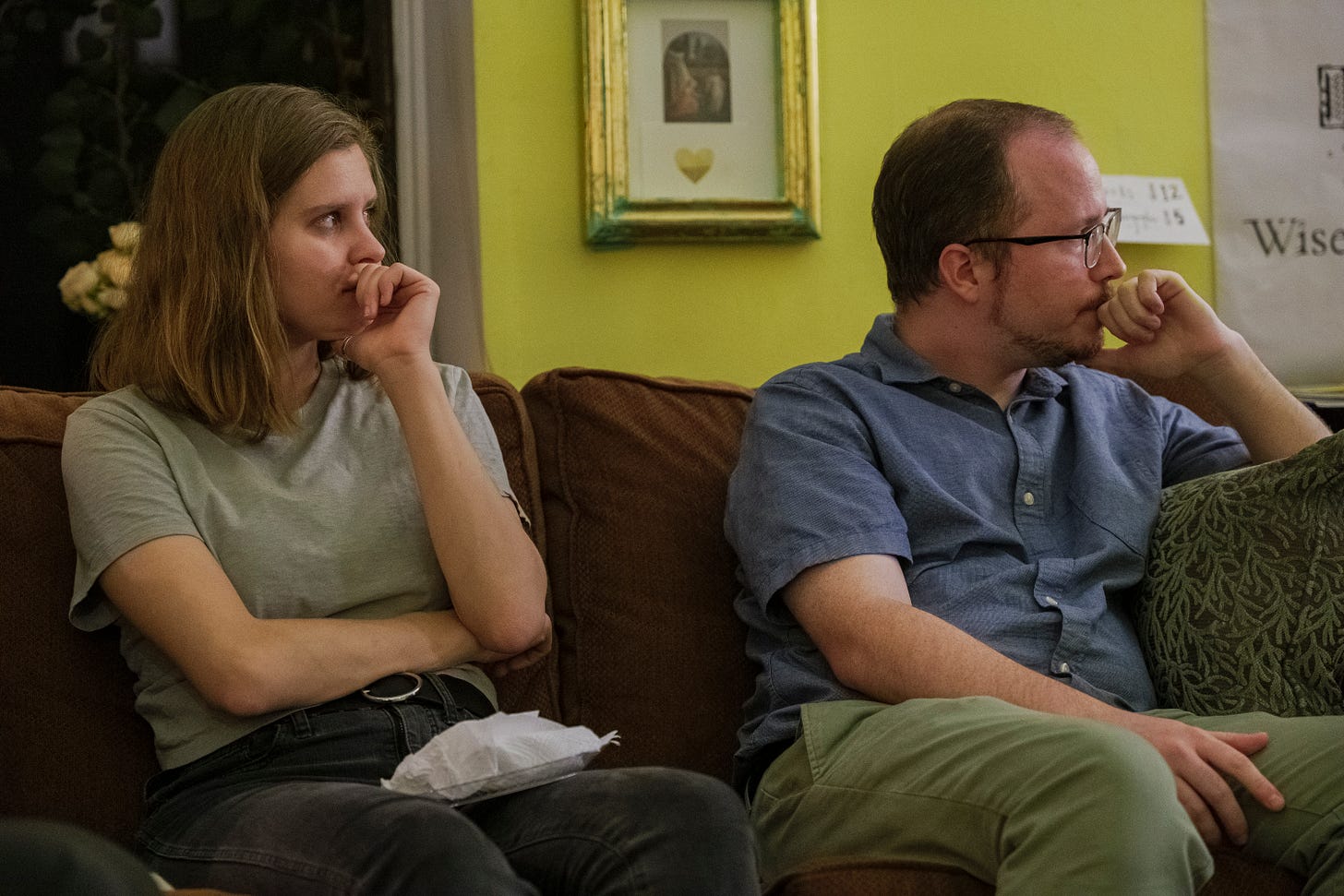[Images: photo of yrstruly & T.C. Merrill at the Arthouse2b reading, September 21, 2023; all images in this post used with permission of the photographer, MJ O’Toole, and Arthouse2b]
“Sequatchie Valley” is a weird little story. To be more exact, it’s a weird long story, in three parts of about 5000 words each. So, at 15000 words total, it’s really almost a novella. The conscious attempt was to compose an apotropaic tragedy: one that seeks to ward off, or guard against, the destructive dynamic into which its protagonist falls.
[I’m not a Greek scholar, but a little searching reveals that the Greek roots, apo + tropos, combine to mean “turning away”—and the turning away is twofold: the art seeks to turn away, in the sense of repel or push back against, that which it also desires its audience to turn away from, escape, flee.]
The piece starts in a Wendell Berry mood and ends in a Shirley Jackson one: rural idyll turned psychological horror. Beyond that, I can’t explain the work and had better not try to, except to say that it is not meant to critique its setting, nor its protagonists’ good intentions.
If the story critiques anything, it critiques phenomena not at all exclusive to the rural life: isolation, idealistic extremism, extractive labor, the kind of self-neglect and hostile pseudogenerosity that is opposed to caritative love because the hostile form attempts more to throw rather than to give away, to alienate from the self, that which should not and cannot be thrown, given, alienated.
Well, okay, that feels like a somewhat heavily determined or top-down reading. That, however, is my personal reading of the story, which, again, I can’t emphasize enough, is more in the horror genre than anything I’d ever thought I’d write. The ending just came out the way it came out, sometime around the spring of 2021, and it took up about half of what was originally a 4000-word draft. That the piece ballooned the way it did had a lot to do with the need to take on unanswered questions about who these people were and how they came to be making such uncommon choices. Then, too, during revision I got interested in Louise Cowan’s The Tragic Abyss and in tragic three-act structure and, well, that is how it grew.
To the extent the story is unsettling—and it should be unsettling—it intends to reach into things that are rarely articulated and hard to discuss in literal terms precisely because they are so thoroughly emotional and so often unexamined. But that, if we’re lucky, is just what the art of fiction can do.
[Arthouse2b co-founder and host, Erin McAtee, setting forth the vision for the group to nurture spiritually attuned & spiritually nourishing arts and letters in the NYC area]
Anyway, it was a real joy and a grace to be able to share the story’s first scene—in which a serious decision is being taken way too blithely—with such a warm, insightful, & receptive audience. It was genuinely a form of what Lewis Hyde calls gift work—which, Hyde’s core thesis is that “the gift must always move,” and that unforced generosity creates community.
If you’d like to use your own gifts to make more of this kind of thing possible, not just for me but for a whole community of writers, editors, artists, and creatives, here’s how you can support our hosts at Arthouse2b and/or my publishers at Wiseblood.
I won’t make appeals like this often, but Wiseblood has a double matching grant going right now, and your support would really mean worlds to me and to them. Likewise, we support and second the mission of Arthouse2b, to “combat widespread isolation and disillusionment.” For all of us, creative work is spiritual, which makes it harder rather than easier to connect it to the financial, but the truth is that even if you’re a fasting (rather than “starving”) artist you still need resources in order to have the freedom to create.
I haven’t yet monetized this Substack and I don’t know if I ever will—but if you find it anywhere in your heart to support me as a writer, and you’re at all in a position to do so (and you’ve already got copies of my books), you could support these organizations that have created conditions not just for me but for so many artists to flourish in their creative lives. I’d be so grateful.









